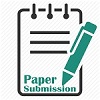An analysis of the effectiveness of merdeka curriculum implementation in primary schools
DOI:
https://doi.org/10.21831/jppfa.v11i2.49449Keywords:
Curriculum evaluation, education innovation, effectiveness of implementation, Kurikulum Merdeka, primary education, primary schoolAbstract
The curriculum is an important educational component, serving as a guide for the teaching and learning process, which must be continuously adapted to the times. Currently, the Minister of Education and Culture of the Republic of Indonesia has launched a new curriculum, namely the Merdeka Curriculum. This study aims to determine the effectiveness of implementing the Merdeka Curriculum in elementary schools as a basic education level. The research was conducted through observations at SDN 244 Guruminda, SDN 235 Lengkong Kecil, and SDN 094 Parakan Waas, the driving schools required to implement the Merdeka Curriculum. Implementing the Merdeka Curriculum in these schools is motivated by a government policy that sets the driving school as a pioneer in implementing this curriculum. However, the observation results show that implementing the Merdeka Curriculum has not been fully effective. This is due to several factors, including the fact that the Merdeka Curriculum is still relatively new, so there needs to be more time to see a significant impact on the quality of education. It's important to acknowledge the challenges faced in implementing the Merdeka Curriculum. These include teachers' readiness to adopt new learning approaches, the availability of adequate resources, and students' adaptation to more flexible and independent learning methods. Understanding these challenges is the first step towards overcoming them and ensuring the successful implementation of the Merdeka Curriculum. This research contributes to providing an initial picture of the effectiveness of implementing the Merdeka Curriculum in primary schools. The findings of this study can be used as evaluation material for policymakers, educators, and school administrators, empowering them to improve the Merdeka Curriculum and provide practical recommendations for schools that will or are implementing this curriculum. Thus, the results of this study are expected to help create an education system that is more responsive and adaptive to the needs of the times, improve the quality of learning, and advance education in Indonesia.
References
Ainia, D. K. (2020). Merdeka Belajar Dalam Pandangan Ki Hadjar Dewantara dan Relevansinya Bagi Pengembangan Pendidikan Karakter.
Ansyar, M. (2017). Kurikulum: Hakikat, Fondasi, Desain dan Pengembangan. Prenada Media.
Bahri, S. (2017). Pengembangan kurikulum dasar dan tujuannya. Jurnal Ilmiah Islam Futura, 11(1), 15-34.
Daga, A. T. (2021). Makna Merdeka Belajar dan Penguatan Peran Guru di Sekolah Dasar. Jurnal Educatio FKIP UNMA, 7(3), 1075-1090.
Dhani, R. R. (2020). Peran Guru Dalam Pengembangan Kurikulum. Jurnal Serunai Adminstrasi Pendidikan, 9(1), 45–50.
Fadilah, R., Parinduri, S.A., Syaimi, K.U., Suharyanto, A. (2020). Islamic Guidance and Counseling to Overcome the Study Difficulty of Junior High School Students in SMP IT Nurul Azizi Medan (Case Study of Students Experiencing Anxiety). International Journal of Psychosocial Rehabilitation.
Istiq'faroh, N. (2020). RELEVANSI FILOSOFI KI HAJAR DEWANTARA SEBAGAI DASAR KEBIJAKAN PENDIDIKAN NASIONAL MERDEKA BELAJAR DI INDONESIA. Lintang Songo : Jurnal Pendidikan, 3(2), 1–10.
Jayanta, I. N. L., & Agustika, G. N. S. (2020). Pemahaman Guru Sekolah Dasar Terhadap Kebijakan Rencana Pelaksanaan Pembelajaran Merdeka Belajar. In Seminar Nasional Riset Inovatif.
Julaeha, S. (2019). Problematika Kurikulum Dan Pembelajaran Pendidikan Karakter. Jurnal Penelitian Pendidikan Islam, 7(2), 157.
https://kurikulum.kemdikbud.go.id/
Manalu, J. B., Sitohang, P., & Henrika, N. H. (2022). Pengembangan Perangkat Pembelajaran Kurikulum Merdeka Belajar. Prosiding Pendidikan Dasar, 1(1), 80-86.
Mustaghfiroh, S. (2020). Konsep "Merdeka Belajar" Perspektif Aliran Progresivisme John Dewey. Jurnal Studi Guru Dan Pembelajaran, 3(1), 141–147.
Noventari, W. (2020). Konsepsi Merdeka Belajar Dalam Sistem Among Menurut Pandangan Ki Hajar Dewantara. Jurnal Pemikiran Dan Penelitian Kewarganegaraan, 15(1), 83–91.
Suryaman, M. (2020, October). Orientasi Pengembangan Kurikulum Merdeka Belajar. In Seminar Nasional Pendidikan Bahasa Dan Sastra (Vol. 1, No. 1, pp. 13-28).
Susilo, A., & Sofiarini, A. (2020). Peran Guru Sejarah dalam Pemanfaatan Inovasi Media Pembelajaran. Jurnal Komunikasi Pendidikan, 4(2), 79–93.
Suyanto. (2020). Implikasi Kebijakan Merdeka Belajar. KOMPAS, 08 Pebruasi,6. https://suyanto.id/implikasi-kebijakan-merdeka-belajar/
Published
How to Cite
Issue
Section
License
The Authors submitting a manuscript do so on the understanding that if accepted for publication, copyright publishing of the article shall be assigned to Jurnal Pembangunan Pendidikan: Fondasi dan Aplikasi
 | Jurnal Pembangunan Pendidikan: Fondasi dan Aplikasi by https://journal.uny.ac.id/index.php/jppfa is licensed under a Creative Commons Attribution-ShareAlike 4.0 International License. |












